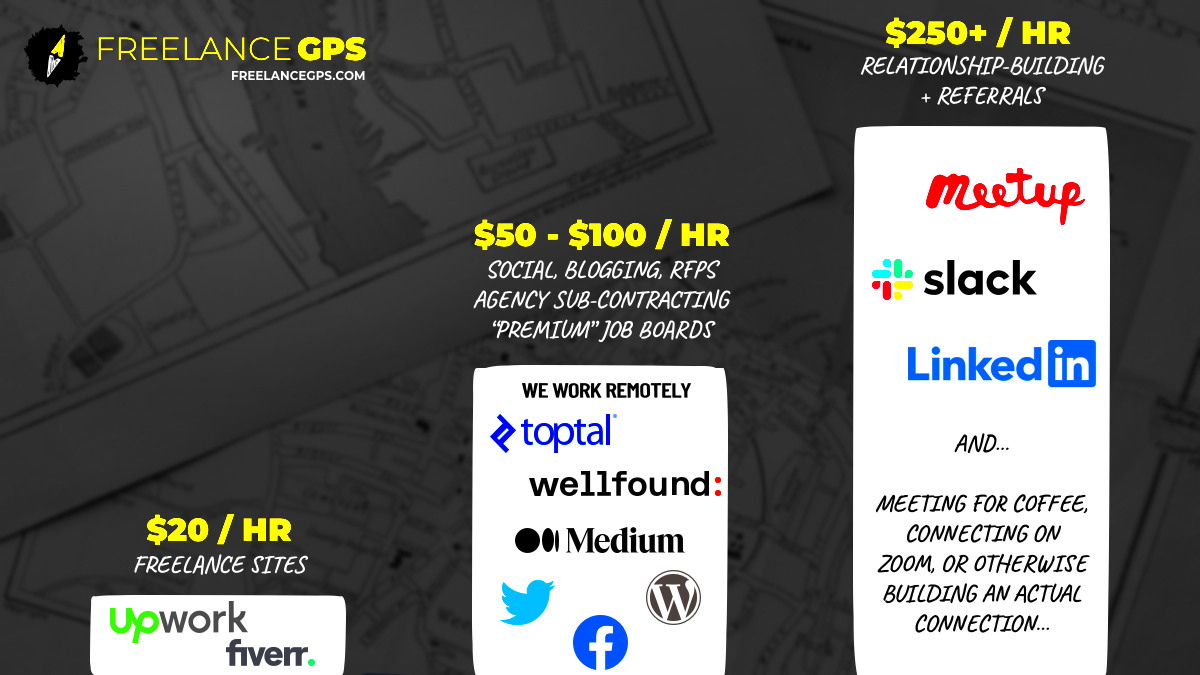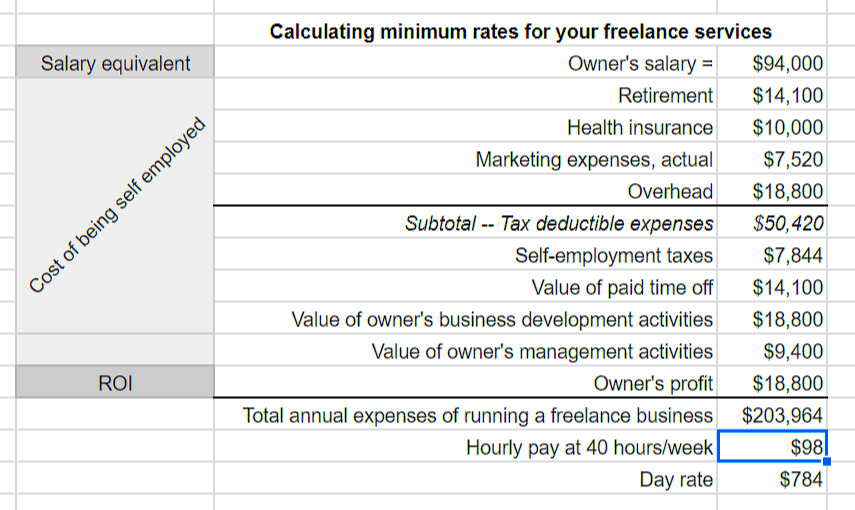Freelance web development rates can vary widely based on factors like experience, location, and project complexity. Understanding these rates is important for setting fair pricing and attracting clients willing to pay for quality work. Freelancers often set rates based on the value they bring and their expertise in specific technologies or design skills.
Whether you’re a new web developer or have years of experience, knowing standard rates helps you position yourself competitively in the market. Let’s look at some of the main factors that influence these rates and how they can guide you in setting or negotiating your own rates effectively.
Factors That Influence Freelance Web Development Rates

Several key factors affect how much freelance web developers charge. Here are some of the primary influences:
- Experience Level: More experienced developers generally charge higher rates, as they bring greater expertise and faster problem-solving skills to projects.
- Project Complexity: Simple websites typically cost less than custom or complex sites that require advanced programming or unique design elements.
- Technology Stack: Developers skilled in high-demand technologies, like React, Node.js, or eCommerce platforms, may charge more due to specialized knowledge.
- Location: Rates can vary by region. For example, developers in the U.S. or Europe may charge more than those in other regions due to living costs.
- Client’s Budget: Some clients, particularly small businesses or startups, have limited budgets and may look for lower-cost options, while larger companies often pay more for experienced developers.
Considering these factors when setting your rates can help you target the right clients and achieve fair compensation for your work.
Also Read This: How to Make Money on Fiverr: A Comprehensive Guide for 2020
Suggested Hourly Rates for Freelance Web Developers

The hourly rate for freelance web developers can vary depending on the factors mentioned above. Here is an approximate breakdown of suggested rates based on experience levels:
| Experience Level | Hourly Rate |
|---|---|
| Beginner (0-2 years) | $20 - $40 per hour |
| Intermediate (2-5 years) | $40 - $80 per hour |
| Advanced (5+ years) | $80 - $150 per hour |
These rates are general estimates, and your rates may vary based on your specific skill set and project requirements. Some highly specialized developers charge even more for complex or niche projects. Evaluating your skills and aligning them with the current demand can help you determine a fair hourly rate that reflects your expertise.
Also Read This: How to Switch to Seller on Fiverr
Project-Based Rates for Different Types of Web Development
In addition to hourly rates, many freelance web developers offer project-based pricing. This approach is often more convenient for clients, as it provides a clear idea of the total cost upfront. Project-based rates vary based on the complexity, duration, and requirements of the project. Here’s a breakdown of typical project-based rates for different types of web development:
| Project Type | Estimated Cost |
|---|---|
| Simple Website (1-5 pages) | $500 - $1,500 |
| Business Website with Custom Design | $2,000 - $5,000 |
| E-commerce Website | $3,000 - $10,000 |
| Complex Web Application | $10,000+ |
The rates above are approximate and can vary widely. For example, a simple website may cost less if it only involves setting up a template, whereas an e-commerce site with custom features like inventory management or payment integrations will likely be on the higher end of the scale. By offering project-based rates, you can align your fees with the specific needs and budget of each client, making it easier to manage client expectations and secure contracts that fit your expertise.
Also Read This: Why You Shouldn’t Use Fiverr for Your Freelance Needs
How Experience Levels Affect Rates
Experience plays a major role in determining freelance web development rates. Generally, the more experience a developer has, the higher their rates will be. Here’s how different experience levels typically impact rates:
- Beginner (0-2 years): Freelancers just starting may charge lower rates, often between $20 and $40 per hour. They may focus on building portfolios and gaining experience with simpler projects.
- Intermediate (2-5 years): Developers with a few years of experience usually charge higher rates, around $40 to $80 per hour. They often have a range of projects under their belt and can handle moderate project complexity.
- Advanced (5+ years): Experienced developers with a strong track record often charge between $80 and $150 per hour or even more. They can manage complex, high-stakes projects and may offer specialized skills in specific frameworks or technologies.
Clients are often willing to pay more for experienced developers because they offer faster turnarounds, reliable problem-solving, and better project outcomes. By understanding where you fall on this scale, you can set rates that reflect your skill level and experience.
Also Read This: What Happens If Fiverr Doesn’t Deliver?
Regional Differences in Web Development Rates
Geography significantly influences freelance web development rates. Developers in different parts of the world charge varied rates, often due to differences in living costs and market demand. Here’s a general look at average rates by region:
| Region | Hourly Rate |
|---|---|
| North America | $50 - $150 per hour |
| Western Europe | $40 - $100 per hour |
| Eastern Europe | $20 - $50 per hour |
| Asia | $15 - $40 per hour |
| South America | $20 - $60 per hour |
Clients sometimes outsource projects to regions with lower rates, especially for standardized tasks. However, some clients prioritize local developers due to time zone alignment, language compatibility, or cultural understanding. As a freelance web developer, understanding regional pricing trends can help you target clients who are looking for your skills at a rate that matches your location’s standard.
Also Read This: How to Write Effective Buyer Requests on Fiverr
How to Set Your Rates as a Freelance Web Developer
Setting your rates as a freelance web developer can feel challenging, especially with so many variables involved. The key is to balance your need for fair compensation with what clients are willing to pay. To establish your rates, consider a few important factors.
- Assess Your Skills: Be honest about your expertise. If you’re a beginner, it’s reasonable to start on the lower end of the rate spectrum. As you gain experience, you can gradually increase your rates to reflect your growing skill set.
- Understand the Market: Research average rates for web developers in your area or in your particular niche. Look at what similar freelancers are charging on platforms like Fiverr and Upwork, as well as freelance job boards.
- Consider Your Expenses: Remember that freelancing comes with its own costs, like software, equipment, and taxes. Make sure your rate covers these expenses and leaves you with a sustainable income.
- Choose an Hourly or Project Rate: Decide if you want to charge hourly or set a flat project rate. Hourly rates are good for open-ended projects, while project rates can appeal to clients who prefer fixed budgets.
Ultimately, setting a fair rate requires some experimentation. As you gain experience, don’t hesitate to adjust your rates based on demand and your evolving expertise.
Also Read This: How to Get a Data Entry Job on Fiverr
Tips for Negotiating Fair Rates with Clients
Negotiating rates can be a delicate process, but with the right approach, you can reach an agreement that benefits both you and your client. Here are some tips to help you negotiate effectively:
- Know Your Value: Highlight your skills and past successes to demonstrate why your rates are justified. Clients are often willing to pay more for proven results.
- Be Clear About Scope: Clearly define what’s included in your rate. For example, specify if revisions are part of the price or if they’ll cost extra.
- Offer Flexible Options: If a client’s budget doesn’t align with your rate, consider offering different pricing options, like a reduced scope or a phased approach.
- Stay Professional: Remember that negotiation is a discussion, not a demand. Be open to compromise but avoid undervaluing your work.
Negotiating can feel uncomfortable at first, but with practice, it becomes easier. Staying firm yet flexible helps you reach a rate that reflects your work’s true worth.
Also Read This: Fiverr vs Other Freelance Platforms: Pros and Cons
Frequently Asked Questions
Here are some common questions freelancers and clients often have about web development rates:
- What is a reasonable hourly rate for a beginner freelance web developer?
Beginner freelance web developers typically charge between $20 and $40 per hour. Rates can increase as they gain experience and build a portfolio. - Is it better to charge hourly or by the project?
Both options have pros and cons. Hourly rates are flexible for ongoing work, while project rates can be more attractive to clients with fixed budgets. Choosing depends on the project type and your comfort level with estimating time. - How do I handle rate increases with existing clients?
To increase rates, give clients advance notice and explain the reasons, such as increased experience or added services. Most clients will understand, especially if you’ve been providing quality work. - How do I determine a fair project rate?
To set a fair project rate, estimate the time required, consider the project’s complexity, and factor in any special skills needed. Ensuring it covers your expenses and leaves a profit margin is crucial.
These answers can guide both new and experienced freelancers in understanding and managing their rates confidently.
Conclusion
Setting and understanding freelance web development rates is crucial for building a sustainable career. Rates vary widely based on experience, project type, and location, and determining the right rate involves assessing your skills, understanding the market, and sometimes negotiating with clients. By setting fair, transparent rates that reflect your expertise and value, you attract the right clients and foster professional growth. Remember, rates can be adjusted as you gain experience or expand your skill set. By being clear, professional, and flexible, you can find the balance between fair compensation and client satisfaction.




